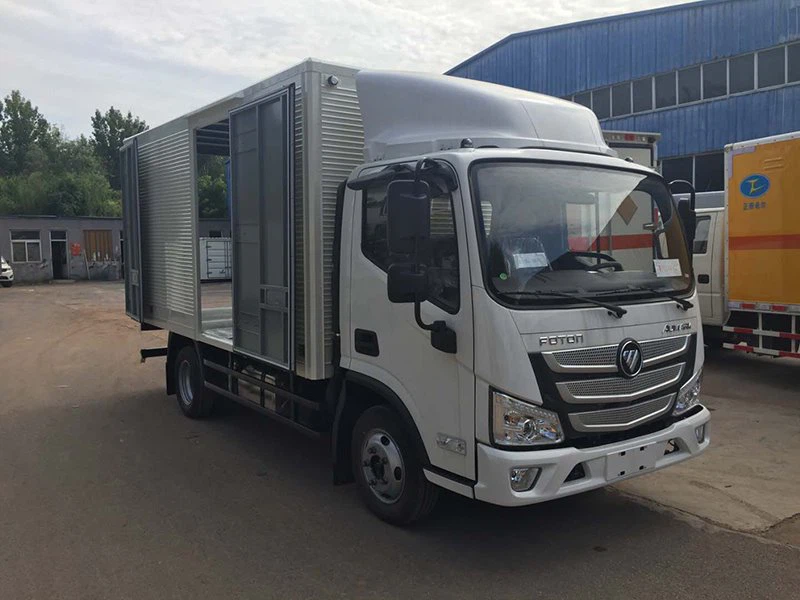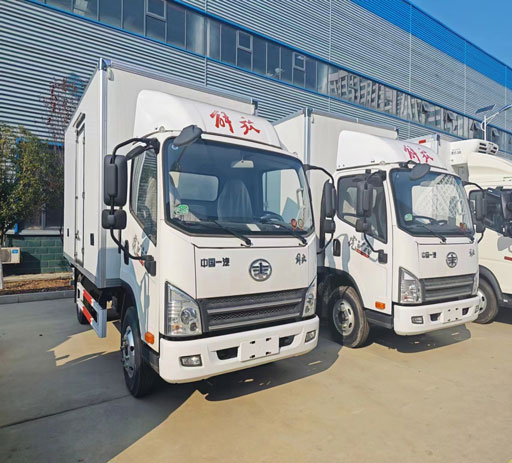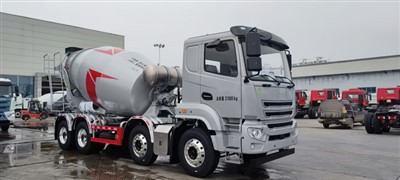Buyer’s Guide to Industrial Vacuum Trucks for Sale

Industrial vacuum trucks are specialized vehicles designed for cleaning and transporting liquid and solid waste. They are widely used in industries such as construction, environmental services, and municipal public works. If you’re looking for an industrial vacuum truck for sale, this comprehensive guide will help you understand their features, benefits, types available, how to choose the right one, and more.
What is an Industrial Vacuum Truck?
An industrial vacuum truck is a powerful vehicle equipped with a vacuum system. It uses suction to collect debris, liquids, sludges, and hazardous materials. These trucks play a crucial role in waste management, cleaning up spills, and maintaining operational cleanliness at various sites.
Key Components of Industrial Vacuum Trucks
- Vacuum System: The heart of the truck, which generates suction to collect waste materials.
- Tank: A large container that stores the collected materials, often made from stainless steel for durability.
- Water System: Many vacuum trucks are equipped with water systems for washing down areas before vacuuming.
- Pump: A vacuum pump that helps create the suction power necessary for efficient operation.
- Hoses and Attachments: Essential tools for accessing hard-to-reach areas and effectively collecting waste.
Types of Industrial Vacuum Trucks
Understanding the different types of industrial vacuum trucks is critical for making an informed purchase. Here are the main types:

1. Non-Hazardous Vacuum Trucks
These trucks are designed for collecting common waste, such as dirt, gravel, and non-toxic liquids. They are widely utilized in construction sites and landscaping.
2. Hazardous Material Vacuum Trucks
Built to handle dangerous materials like chemicals and hazardous waste, these trucks have specialized tanks and features to ensure safety during transport and disposal.
3. Combination Vacuum Trucks
A combination vacuum truck integrates vacuum capabilities and high-pressure water jets to handle both liquid and solid waste, making it ideal for various applications.
4. Industrial Wet/Dry Vacuum Trucks
Specifically designed to clean wet and dry substances, these trucks are versatile for handling wastewater, sludge, and other materials.
Benefits of Using Industrial Vacuum Trucks
Investing in an industrial vacuum truck comes with numerous advantages:
1. Efficiency in Waste Management
Vacuum trucks can collect and transport large volumes of waste faster than manual methods, improving productivity on-site.
2. Cost-Effective Solution
Though the upfront cost may be high, they reduce labor costs and enhance disposal efficiency, leading to long-term savings.
3. Environmental Safety
Proper waste collection and disposal prevent contamination and adhere to environmental regulations, promoting safety and sustainability.
4. Versatility
These trucks can be used in several industries such as construction, sanitation, and environmental cleanup, making them a versatile investment.
How to Choose the Right Industrial Vacuum Truck
Selecting the right industrial vacuum truck requires careful consideration of several factors:
1. Determine Your Needs
Assess the type of waste you will handle. Chemicals, liquids, solids? This will determine whether to choose a non-hazardous or hazardous vacuum truck.
2. Assess Tank Size
The size of the tank should match your operational needs. Larger tanks mean less frequent dumping but can affect maneuverability.
3. Consider Power and Performance
Look at the vacuum pump’s horsepower and suction capability. A powerful vacuum truck will perform better in challenging conditions.
4. Evaluate the Brand and Model
Research reputable brands and read customer reviews. Popular brands often have better service support and reliability.
5. Check Compliance with Standards
Ensure that the truck meets local regulations and standards, especially if dealing with hazardous materials.
Financing Options for Purchasing Industrial Vacuum Trucks
There are several financing options to consider when looking to buy an industrial vacuum truck:
1. Direct Purchase
This involves paying for the truck upfront, eliminating future payments. Consider this option if you have sufficient capital.
2. Loans
Bank loans or equipment financing can help spread the cost over several years, making it more manageable.
3. Leasing
Short-term leasing is an excellent option for businesses that may not need a truck for long durations while preserving capital.
Maintenance Tips for Industrial Vacuum Trucks
1. Regular Inspections
Conduct routine inspections to identify problems early, including checking the tank, pump, hoses, and engine.
2. Clean the Filters
Regularly clean or replace filters to maintain suction efficiency and protect your equipment from damage.
3. Check Fluid Levels
Keep an eye on engine oil, hydraulic fluid, and water levels, ensuring everything is topped up for optimal performance.
4. Follow Manufacturer’s Guidelines
Refer to the manufacturer’s manual for specific maintenance schedules and requirements.
Where to Find Industrial Vacuum Trucks for Sale
Once you are ready to purchase an industrial vacuum truck, here are some places to look:
1. Manufacturer Websites
Visit official websites of manufacturers to check available models and request quotes.
2. Online Marketplaces
| Marketplace | Description |
|---|---|
| eBay | Offers both new and used vacuum trucks with user reviews. |
| Commercial Truck Trader | A dedicated platform for buying and selling commercial trucks, including vacuum trucks. |
| MachineryTrader | Specializes in listing heavy machinery and trucks, suitable for various industry needs. |
3. Equipment Dealers
Local equipment dealers often have vacuum trucks in stock. Visiting in-person allows you to inspect vehicles before purchase.
4. Auctions
Auction sites often deal with used construction and industrial vehicles, where you can find good deals.
Practical Examples of Industrial Vacuum Trucks in Use
1. Construction Sites
Vacuum trucks are used to clean up debris, excess water, and other materials that accumulate during construction activities, maintaining site safety.
2. Municipal Waste Management
Cities often use industrial vacuum trucks to manage sewage systems, ensuring clogged drains and sewers are promptly cleared.
3. Environmental Cleanup
Vacuum trucks are employed in hazardous waste cleanup operations, where toxic materials must be safely collected and disposed of to prevent environmental damage.
FAQs about Industrial Vacuum Trucks
1. What factors affect the cost of industrial vacuum trucks?
The size, type, and brand of the truck, along with additional features like tank size and pumping capability, all influence the price.
2. Are there any specific training requirements for operating vacuum trucks?
Yes, operators often need specific training, especially for hazardous material handling, to ensure safety compliance and effective use.
3. Can I find used industrial vacuum trucks for sale?
Yes, many dealerships and online marketplaces offer used vacuum trucks, but ensure to check their condition and service history.

4. How often should I service my industrial vacuum truck?
It’s recommended to conduct regular inspections every 1,000 miles and to perform comprehensive service checks at least once a year.
5. What is the average lifespan of an industrial vacuum truck?
With proper maintenance, industrial vacuum trucks can last between 10 to 15 years or longer, depending on usage and care.

6. Are there any environmental regulations for vacuum trucks?
Yes, there are regulations concerning waste disposal and emissions. It’s essential to comply with EPA guidelines and local laws related to industrial waste management.
